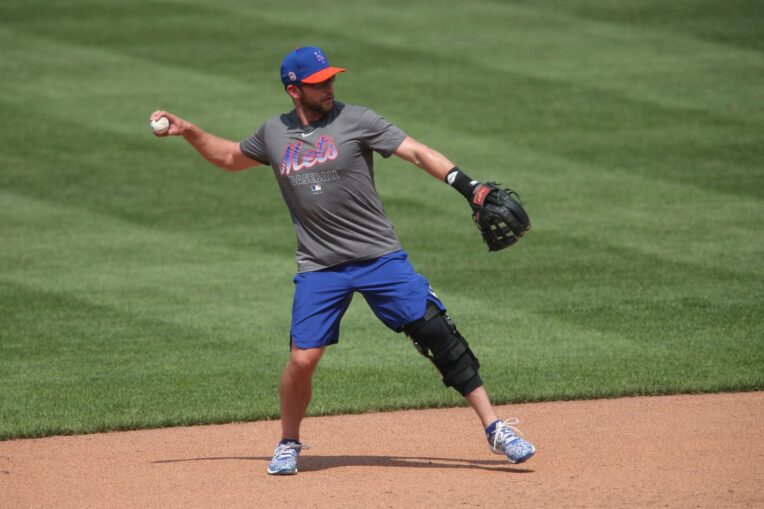
Brad Penner/USA Today
In an article by Ryan Dunleavy of The New York Post, former Met Jed Lowrie said that the organization did not permit him to have surgery on his injured knee.
The Mets signed Lowrie to a two-year, $20 million contract prior to the 2019 season. Lowrie had just eight plate appearances in 2019, and none in 2019. The Salem, Oregon native was diagnosed with a knee fat pad impingement during spring training of 2019, and according to the player, he was threatened with a grievance if he pursued a surgical remedy.
Lowrie also did not like the way the entire situation was handled. From Dunleavy’s article:
“When you’re questioned on social media or by people behind your back, I consider it to be nothing more significant than gossip,” Lowrie told The Athletic. “I’ve had some injuries, but this last situation with the Mets was really frustrating.”
When Lowrie did appear in games in 2019, he did so wearing a large brace on his knee, that would lead one to question if he could have possibly competed at the major league level under those circumstances.
Perhaps most frustrating is that when Lowrie did have surgery at the end of his Mets contract in October of 2020, he recovered in just four months, hit free agency once again, and signed with the Athletics for another go-round in Oakland. He was their opening day second baseman in 2021. Lowrie is happy the whole experience is behind him.
“I missed playing so much, it was very difficult,” Lowrie said. “I would love to play two more years, then perhaps work in the business. It’s been my life for a long time, from Stanford to 14 seasons in the major leagues.”
The Lowrie situation is not a good look for the Mets. The worst part is that it’s not unprecedented. Former Mets pitcher Pedro Martinez told a similar story of being coerced into playing through an injury during his tenure in Flushing.
In an article in SI.com, Martinez (who detailed this story in his book), spoke of a situation that occurred in the 2005 season while he was with the Mets. The Mets were set to take on the Marlins in a late-season game, with the Mets’ playoff hopes all but gone.
“I couldn’t help but think about how when I was healthy in 2005, our team wasn’t that good,” Martinez writes. “But as my health declined, I was urged to pitch a meaningless game at the end of 2005 that wound up shortening my recovery time for 2006 and led me to a hospital where doctors performed a three-hour arthroscopic procedure to repair my shoulder.”
Martinez added that the directive that he pitch came from the top, recalling this quote from Mets’ Chief Operating Officer, Jeff Wilpon: “While I’m the boss here, you’re going to have to do what I say.”
Wilpon later denied having required Martinez to pitch in that 2005 game.
“Pedro was always a great competitor and deserving of being in the Hall of Fame,” he said through a team spokesman. “This particular excerpt in the book is false as those kinds of decisions have always been put in the hands of our baseball people.”
With the Mets’ new ownership, these types of occurrences that are detrimental to both the players and the organization’s reputation, should be things of the past.















